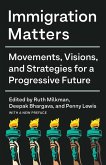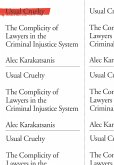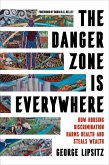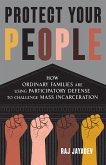A powerful argument for separating immigration enforcement from the criminal legal system, by one of the nation's foremost crimmigration experts
In the fevered battles over immigration, Democrats and Republicans alike agree on this: that migrants who have committed a crime have no place in this country. But targeting migrants because they have committed a crime is a short-sighted appeal to nativist fear. To predicate a migrant's right to stay in the country on whether they are law-abiding and therefore deserving or criminal and undeserving does little to improve public safety and has an especially devastating impact on low-income migrants of color.
While César Cuauhtémoc García Hernández's first book, Migrating to Prison, focuses on the explosion of migrant detention centers over the past decades, Welcome the Wretched tackles head-on what happens when a deeply flawed and racist criminal legal system and immigration system converge to senselessly cruel effect. Drawing on everything from history to legal analyses and philosophy, García Hernández counters the fundamental assumption that criminal activity has a rightful place in immigration matters, arguing that instead of using the criminal legal system to identify people to deport, the United States should place a reimagined sense of citizenship and solidarity at the center of immigration policy.
In the fevered battles over immigration, Democrats and Republicans alike agree on this: that migrants who have committed a crime have no place in this country. But targeting migrants because they have committed a crime is a short-sighted appeal to nativist fear. To predicate a migrant's right to stay in the country on whether they are law-abiding and therefore deserving or criminal and undeserving does little to improve public safety and has an especially devastating impact on low-income migrants of color.
While César Cuauhtémoc García Hernández's first book, Migrating to Prison, focuses on the explosion of migrant detention centers over the past decades, Welcome the Wretched tackles head-on what happens when a deeply flawed and racist criminal legal system and immigration system converge to senselessly cruel effect. Drawing on everything from history to legal analyses and philosophy, García Hernández counters the fundamental assumption that criminal activity has a rightful place in immigration matters, arguing that instead of using the criminal legal system to identify people to deport, the United States should place a reimagined sense of citizenship and solidarity at the center of immigration policy.
Dieser Download kann aus rechtlichen Gründen nur mit Rechnungsadresse in A, D ausgeliefert werden.









